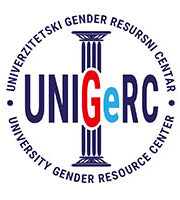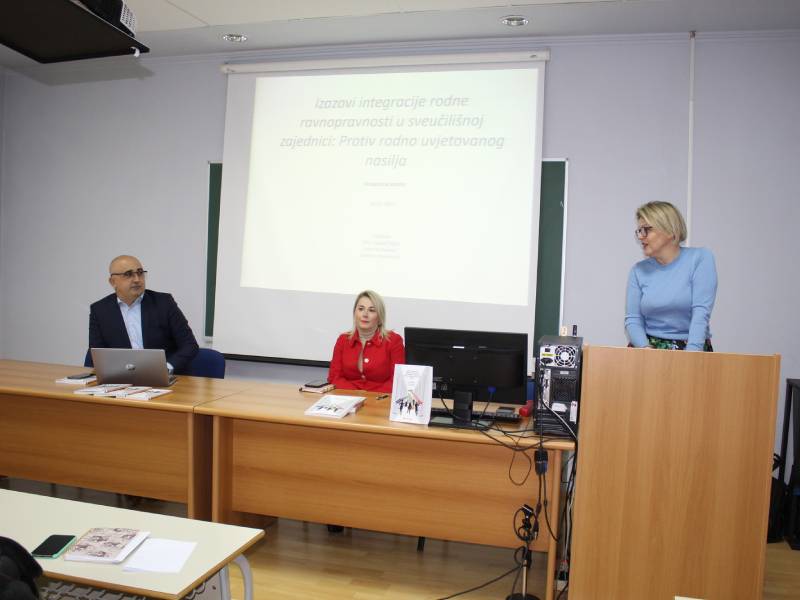On November 22, 2022, the University of Mostar promoted the first regional research on gender-based violence (GBV) in academic communities, presented in the publication “Challenges of integrating gender equality in the university community: Against gender-based violence”, edited by prof. Ph.D. Zilka Spahić Šiljak, prof. Ph.D. Jasna Kovačević and Prof. Ph.D. Jasmina Husanović. The research was conducted in B&H, Montenegro, Croatia, and Serbia, at 18 partner universities of the UNIGEM project, which is implemented by the TPO Foundation from Sarajevo, with the financial support of the United Kingdom Government, with the aim of preventing and combating gender-based violence, discrimination, and sexual harassment, and the assurance of integrity and quality in higher education.
The following spoke about the publication: prof. Ph.D. Davorka Topić Stipić, Ph.D. sc. Zlatko Brkić and Assoc. Ph.D. Ivona Čarapina Zovko.
UNIGEM research is the result of extensive research endeavours in which the most modern multidisciplinary approach was used from methodological, sociological, psychological, cultural, theological, social, philosophical, and other perspectives. It included 4,754 respondents, comprising teaching and administrative staff, as well as students from various scientific fields.
The important conclusions of the research point to the fact that gender-based violence often occurs in combination with other types of violence, including mobbing, that it has a negative impact on the health, well-being, and careers of women and men, and that it is a phenomenon whose health and economic costs can be significantly reduced if prevented. As many as 80% of the interviewed people know that their colleagues have experienced sexual and gender-based violence and/or discrimination, 75.8% of teachers in the region do not know whether procedures for sanctioning perpetrators have been initiated, 61% of the interviewed people have experienced domestic violence or sexual violence. Also, the lack of appropriate mechanisms that go towards solving the problem of gender-based discrimination and GBV are pointing towards a need for a systemic solution to these problems and necessary legal changes in B&H, Montenegro, and Serbia that are important for the process of joining the European Union.
The promotion of the publication was attended by representatives of the academic community, and both male and female students.







